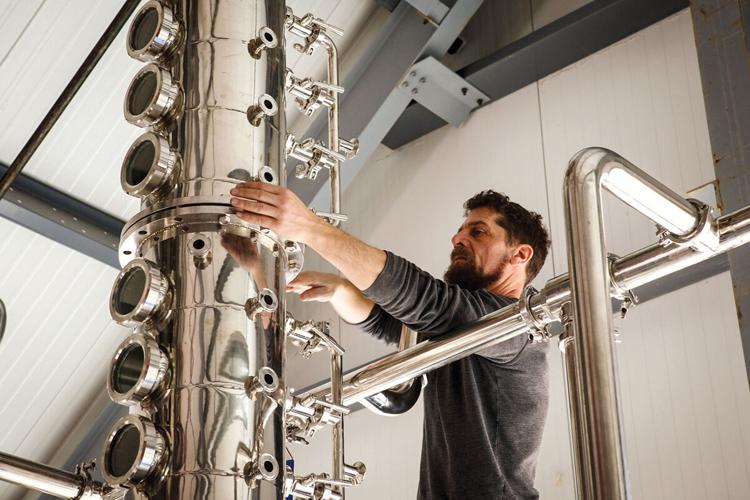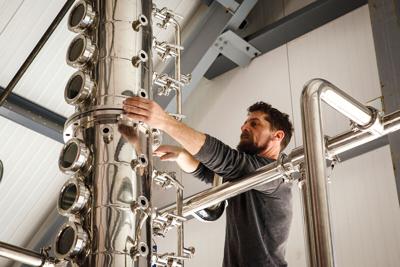
Craig Stevens
After seven years, Wild Hart Distillery, a craft distillery and tasting room in Shelburne, ran its last batch of specialty spirits at the end of February.
Craig Stevens, owner and operator, said that he had let staff know about the decision in December to allow ample time for employees to find their footing.
“My biggest regret is disappointing folks,” he said. “It’s always a mixed bag when you do something that’s good for yourself, but it does impact other people both in terms of having a tasting room where people were able to come and listen to music as well as our products in the liquor stores.”
Since its founding in 2017, Stevens’ product has catered to people who crave a luxury spirit brand but at a price that doesn’t leave too big a dent. His goods can be bought at just under $30, a price point he has remained committed to keeping since the distillery’s beginning.
“The flavor profiles that we’ve developed have been things that are super approachable, and we’ve really worked hard to keep our prices at below that $30 level,” he said, adding that as the need to increase staffing and prices of everything began to skyrocket, “our margins were getting smaller.”
Although products could be found locally at liquor stores and more than 15 farmers markets that Stevens frequented, products were also shipped as far as the mid-Atlantic. To make his vodka, spiced rum and signature gins even more accessible, Stevens opened a tasting room last year that featured live music, specialty cocktails and a cozy vibe.
In addition to crafting his own product, Wild Hart Distillery also acted as an incubator space for smaller spirit brands like Linchpin, Rectified Bourbon and Arcana Botanica.
Stevens said that the overhead to open a distillery in incredibly expensive, and finding folks to collaborate with him when he was first started was difficult.
“I made a commitment to basically try to help other small makers bring their product to market and the way that I operated that was instead of paying rent, I did commission based,” he said. “So, for every bottle that they sold, I made a commission, and they make money. It was a little easier for them in terms of not bearing that type of overhead and the concept was once they started to feel like they’re paying me too much commission, then they’ve probably grown large enough to start their own distillery.”
All those businesses, Steves said, are expected to continue, and they have even solidified two new “homes” for the businesses.
“I’ll continue helping them out in terms of transferring over to a new distillery and everything that comes with that,” he said.
Stevens says he still loves the farmers markets and local events he’s frequented through his business but looks forward to returning to the public health care field.
“I’m really looking forward to having those weekends to actually be on the other side of the table because we’ve just got a huge, amazing community of makers,” he said. “I met so many people throughout this process and made so many great bonds with other makers and those are things that’ll continue.”























(0) comments
Welcome to the discussion.
Log In
Keep it clean. Please avoid obscene, vulgar, lewd, racist or sexual language.
PLEASE TURN OFF YOUR CAPS LOCK.
Don't threaten. Threats of harming another person will not be tolerated.
Be truthful. Don't knowingly lie about anyone or anything.
Be nice. No racism, sexism or any sort of -ism that is degrading to another person.
Be proactive. Use the "Report" link on each comment to let us know of abusive posts.
Share with us. We'd love to hear eyewitness accounts, the history behind an article.